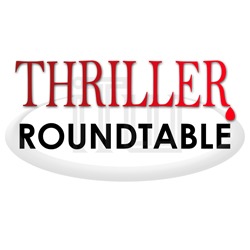

Nov 15-21: “What’s the one piece of advice you’d give to the next generation of thriller authors?”
Join ITW members Jeff Sheratt, Katia Lief, Steven James, Michael Parker, Joshua Corin, David Golemon, Reed Farrel Coleman, Stephen Coonts, and Peter Steiner as they offer their best advice to upcoming thriller authors. And don’t forget you can also ask our panelists questions!
Jeff Sherratt has had two novels published by Echelon Press, a traditional independent publisher. The second, Guilty or Else (2009) was nominated for the Left Coast Crime Panik Award. Jeff is a past board member of Sisters in Crime/LA, and currently a member of Mystery Writers of America. Jeff has been a speaker at many book events. Jeff’s third mystery novel in the Jimmy O’Brien series, Detour to Murder, was released by ZOVA Books on October 12, 2010
The first two thrillers in Katia Lief’s new series, YOU ARE NEXT and NEXT TIME YOU SEE ME, were recently published by Avon/HarperCollins, and have been called “brilliantly diabolical,” “chilling,” and “impossible to put down.” The series will also appear in the U.K., Germany and the Netherlands. Katia is the pseudonymous author, as Kate Pepper, of five previous thrillers. She teaches fiction writing at The New School in Manhattan and lives with her family in Brooklyn. wwwkatialief.com
Steven James is the award-winning, national bestselling author of four critically acclaimed thrillers: The Pawn, The Rook, The Knight and The Bishop. He has a Master’s Degree in Storytelling and has taught writing and creative communication throughout the world since 1999. When he’s not writing and speaking he’s playing basketball, rock climbing or eating pepperoni pizza with his three daughters.
Michael Parker is the author of seven novels in differnet genres: Thriller, War and Historical Adventure. He has been writing all his adult life and never fails to deliver, keeping the reader turning the pages until the end. He has been married to Pat for over 50 years and lives in Spain. His new venture into POD has resulted in the paperback, NORTH SLOPE; an ice cold, action packed thriller set in the frozen wastes of North Alaska. Available on Amazon.
Joshua Corin’s first novel, the screwball thriller Nuclear Winter Wonderland, published with Kunati Books in 2008. Nuclear Winter Wonderland later went on to be named by Booklist as one of the top ten debut crime novels of the year. His next work, While Galileo Preys,is the first in a series about a Long Island housewife-crimefighter named Esme Stuart. It was published to rave reviews by MIRA in September 2010, and its sequel, Before Cain Strikes, will be in stores March 2011.
David L. Goleman grew up in California and now makes his home in New York.Event and Legend are the first two adventures in the Event Group series.
Called a “hard-boiled poet” by NPR’s Maureen Corrigan and the noir poet laureate in the Huffington Post, Reed Farrel Coleman has published twelve novels. He is the three-time winner of the Shamus Award, has been twice nominated for the Edgar, and has also won the Barry, Macavity and Anthony Awards. He is an adjunct professor at Hofstra University and edited the anthology Hard Boiled Brooklyn. Innocent Monster, his most recent novel, was released in October.
Veteran naval aviator Stephen Coonts shook up the action-adventure game with his 1986 bestseller, Flight of the Intruder. He followed that dazzling debut with a string of adventures starring intrepid hero Jake Grafton — a series that only gets more popular with each new release.
Peter Steiner is a former professor of German and New Yorker Cartoonist. He currently divides his time between painting and writing. He has had three novels published–“Le Crime,” “L’Assassin,” and “The Terrorist.” His website is plsteiner.com.
- LAST GIRL MISSING with K.L. Murphy - July 25, 2024
- CHILD OF DUST with Yigal Zur - July 25, 2024
- THE RAVENWOOD CONSPIRACY with Michael Siverling - July 19, 2024

